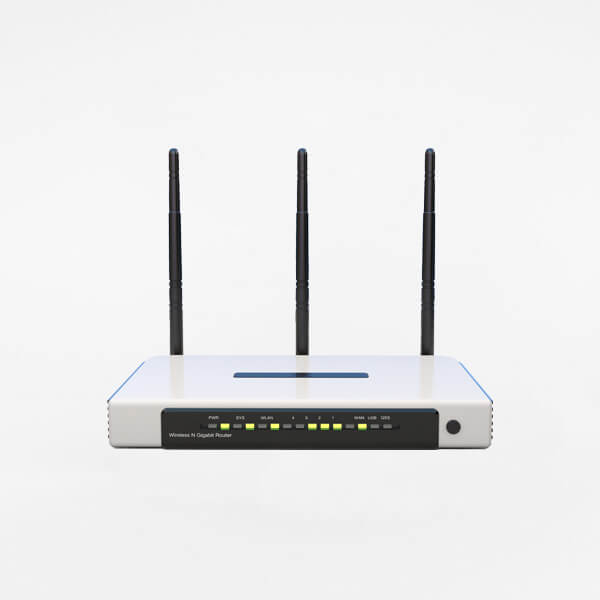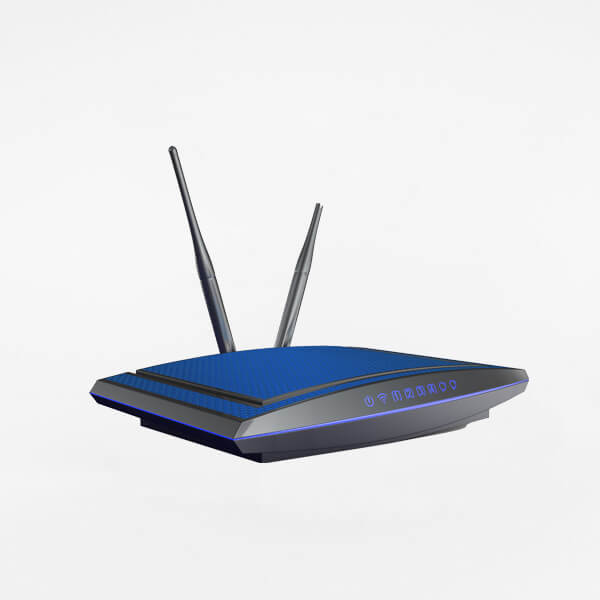Specifications
General
Interfaces
-
20 10/100/1000BASE-T
-
4 Combo 10/100/1000BASE-T/SFP
-
2 10G CX4
Optional Redundant Power Supply
Console Port
Stacking Port
SD Card Slot
Performance
Switching Capacity
64-Byte Packet Forwarding Rate
Packet Buffer Memory
Flash Memory
PoE
-
(DGS-3120-24PC and DGS-3120-48PC only)
Standards
Power Budget
-
370 watts
-
740 watts (with DPS-700 RPS)
Physical & Environment
MTBF (Hours)
Acoustics
Heat Dissipation
-
1646.0 BTU/h (with 370 W PoE load), 3188.7 BTU/h (with 740W PoE load)
Power Input
-
100 to 240 VAC, 50 to 60 Hz Internal Universal Power Supply
Max Power Consumption
-
482.7 Watts (with 370W PoE load), 935.1 Watts (with 740W PoE load)
Dimensions (W x D x H)
-
17.3” x 12.2” x 1.73” (440 x 310 x 44mm)
Weight
Ventilation
-
4 Smart Fans ( > 40° C: High Speed; < 35° C: Low Speed)
Operating Temperature
-
32° to 122°F (0 to 50 °C)
Storage Temperature
-
-40° to 158° F (-40 to 70 °C)
Operating Humidity
Storage Humidity
Emission (EMI)
-
FCC Class A, CE Class A, VCCI Class A, IC, C-Tick
Safety
Certification
Software Features
Standard Image (SI) Features
Stackability
-
Physical Stacking
-
Up to 40G Stacking Bandwidth
-
Up to 6 units per Stack
-
Virtual Stacking
-
D-Link Single IP Management (SIM)
-
Up to 32 units per Virtual Stack
L2 Features
-
MAC Address Table: 16K
-
Flow Control
-
802.3x Flow Control
-
HOL Blocking Prevention
-
Jumbo Frame up to 13K Bytes
-
Spanning Tree Protocols
-
802.1D STP
-
802.1w RSTP
-
802.1s MSTP
-
BPDU Filtering
-
Root Restriction
-
Loopback Detection
-
802.3ad Link Aggregation
-
Max. 32 groups per device/8 Gigabit ports per group
-
Port Mirroring
-
One-to-One
-
Many-to-One
-
Flow-based
-
RSPAN Mirroring
L2 Multicasting
-
IGMP Snooping
-
IGMP v1/v2/v3 Snooping
-
Supports 1024 IGMP groups
-
Port/Host-based IGMP Snooping Fast Leave
-
IGMP Snooping Querier
-
Limited IP Multicast
-
Up to 24 IGMP filtering profiles, 32 ranges per profile
-
MLD Snooping
-
MLD v1/v2 Snooping
-
Support 1024 MLD Groups
-
Host-based MLD
-
MLD Snooping Querier
-
Snooping Fast Leave
VLAN
-
VLAN Group
-
Max. 4K VLAN Groups
-
GVRP
-
Max. 255 Dynamic VLAN Groups
-
802.1Q Tagged VLAN
-
Port-based VLAN
-
802.1v Protocol VLAN
-
Voice VLAN
-
MAC-based VLAN
-
ISM VLAN
-
Asymmetric VLAN
-
Private VLAN
-
VLAN Trunking
QoS (Quality of Service)
-
802.1p
-
8 queues per port
-
Queue Handling
-
Strict Priority
-
Weighted Round Robin (WRR)
-
Strict + WRR
-
CoS based on
-
Switch Port
-
VLAN ID
-
802.1p Priority Queues
-
MAC Address
-
IPv4 Address
-
DSCP
-
Protocol Type
-
TCP/UDP Port
-
User-Defined Packet Content
-
IPv6 Address
-
IPv6 Traffic Class
-
IPv6 Flow Label
-
Supports following actions for flows
-
Remark 802.1p Priority Tag
-
Remark TOS/DSCP Tag
-
Bandwidth Control
-
Bandwidth Control
-
Port-based (Ingress/Egress, Min. Granularity 64 Kbps)
-
Flow-based (Ingress/Egress, Min. Granularity 64 Kbps)
Access Control List (ACL)
-
Supports up to 1.5K Ingress access rules
-
ACL based on
-
802.1p Priority
-
VLAN ID
-
MAC Address
-
Ether Type
-
IPv4 Address
-
DSCP
-
Protocol Type
-
TCP/UDP Port Number
-
User-Defined Packet Content
-
IPv6 Address
-
IPv6 Flow Label
-
IPv6 Traffic Class
-
Time-based ACL
-
CPU Interface Filtering
Security
-
SSH v2
-
SSL v1/v2/v3 (for WebGUI)
-
Port Security
-
Up to 64 MAC addresses per port/VLAN
-
Broadcast/Multicast/Unicast Storm Control
-
Traffic Segmentation
-
D-Link Safeguard Engine
-
NetBIOS/NetBEUI Filtering
-
DHCP Server Screening
-
ARP Spoofing Prevention
-
BPDU Attack Protection
AAA
-
802.1X:
-
Port-based Access Control
-
Host-based Access Control
-
Identity-driven Policy (VLAN, ACL or QoS) Assignment
-
Authentication Database Failover
-
Web-based Access Control(WAC):
-
Port-based Access Control
-
Host-based Access Control
-
Identity-driven Policy (VLAN, ACL or QoS) Assignment
-
Authentication Database Failover
-
MAC-based Access Control(MAC):
-
Port-based Access Control
-
Host-based Access Control
-
Identity-driven Policy (VLAN, ACL or QoS) Assignment
-
Authentication Database Failover
-
Japan Web-based Access Control (Host-based JWAC)
-
Guest VLAN
-
Microsoft® NAP
-
Support 802.1X NAP
-
Support DHCP NAP
-
RADIUS Accounting
-
RADIUS and TACACS authentication for switch access
-
4 Level User Account
D-Link Green Features
-
Compliant with RoHS
-
Power Saving by Link Status
-
Power Saving by Cable Length
-
Time-based PoE
Operation, Administration & Management (OAM)
Management
-
Web-based GUI (Supports IPv4)
-
Command Line Interface (CLI)
-
Telnet Server (Supports IPv4)
-
Telnet Client (Supports IPv4)
-
SSH Server (Supports IP44)
-
TFTP Client(Supports IPv4)
-
ZModem
-
SNMP v1/v2c/v3
-
SNMP Traps
-
System Log (Supports IPv4 Log Server)
-
RMON v1
-
Supports 1,2,3,9 groups
-
RMON v2
-
Supports ProbeConfig group
-
LLDP
-
BootP/DHCP Client
-
DHCP Auto-Configuration
-
DHCP Relay
-
DHCP Relay Option 12
-
DHCP Relay Option 82
-
Flash File System
-
Multiple Images
-
Multiple Configurations
-
CPU Monitoring
-
Debug Command
-
SNTP
-
Password Recovery
-
Password Encryption
-
Trusted Host
-
Microsoft® NLB (Network Load Balancing) Support
MIB
-
RFC 1213 MIB II
-
RFC 4188 Bridge MIB
-
RFC 1157, 2571-2576 SNMP MIB
-
RFC 1907 SNMPv2 MIB
-
RFC 1757, 2819 RMON MIB
-
RFC 2021 RMONv2 MIB
-
RFC 1398, 1643, 1650, 2358, 2665 Ether-like MIB
-
RFC 2674 802.1p MIB
-
RFC 2233, 2863 IF MIB
-
RFC 2618 RADIUS Authentication Client MIB
-
RFC 2620 RADIUS Accounting Client MIB
-
RFC 2925 PING & TRACEROUTE MIB
-
RFC 2674, 4363 802.1p MIB
-
RFC 1215 MIB Traps Convention
RFC Standard Compliance
-
RFC 768 UDP
-
RFC 791 IP
-
RFC 792, 2463, 4443 ICMP
-
RFC 793 TCP
-
RFC 826 ARP
-
RFC 3513, 4291, IPv6 Addressing Architecture
-
RFC 2893, 4213 IPv4/IPv6 dual stack function
-
RFC 2463, 4443 ICMPv6
-
RFC 2462, 4862 IPv6 Stateless Address Auto Configuration
-
RFC 2464 IPv6 Ethernet and definition
-
RFC 1981 Path MTU Discovery for IPv6
-
RFC 2460 IPv6
-
RFC 2461, 4861 Neighbor Discovery for IPv6
-
RFC 783 TFTP
-
RFC 854 Telnet
-
RFC 951, 1542 BootP
-
RFC 2068 HTTP
-
RFC 1492 TACACS
-
RFC 2866 RADIUS Accounting
-
RFC 2474, 3260 DiffServ
-
RFC 1321, 2284, 2865, 3580, 3748 Extensible Authentication Protocol(EAP)
-
RFC 2571, 2572, 2573, 2574, SNMP
-
IPv6 Ready Logo Phase 2
Enhanced Image (EI) Features
(includes support for all Standard Image (SI) features, plus the following)
L2 Features
-
Double VLAN (Q-in-Q)
-
Port-based Q-in-Q
-
Ethernet Ring Protection Switching (ERPS)
L3 Features
-
Max. 16 IP Interfaces
-
ARP Proxy6
-
IPv6 Neighbour Discovery (ND)
L3 Routing
-
Max. 16 IP Interfaces
-
ARP Proxy
-
IPv6 Neighbor Discovery (ND)
-
Static Route
-
512 static routes
Access Control List (ACL)
-
Supports up to 512 Egress access rules
-
ACLs support IPv4/IPv6
Security
-
IP-MAC-Port Binding
-
ARP Packet Inspection
-
IP Packet Inspection
-
DHCP Snooping
-
IPv6 ND Snooping
-
Support up to 510 Address Binding Entries per Device
AAA
-
Compound Authentication
-
WAC IPv6
-
JWAC IPv6
Operation, Administration & Management (OAM)
-
802.3ah Ethernet Link OAM
-
802.3ah D-Link Extension: D-link Unidirectional Link Detection (DULD)
-
802.1ag Connectivity Fault Management (CFM)
-
ITU-T Y.1731
Management
-
SNMP v1/v2c/v3
-
SNMP over IPv6
-
SSH CLI IPv6
-
Syslog IPv6
-
sFlow v5
-
PPPoE Circuit ID Tag Insertion
-
Telnet Server/Client IPv6
-
TFTP IPv6
-
Nam at elit nec neque suscipit gravida.
-
Aenean egestas orci eu maximus tincidunt.
-
Curabitur vel turpis id tellus cursus laoreet.
All the Lorem Ipsum generators on the Internet tend to repeat
predefined chunks as necessary, making this the first true generator on the Internet. It uses a
dictionary of over 200 Latin words, combined with a handful of model sentence structures, to
generate Lorem Ipsum which looks reasonable.


















Add Your Comments